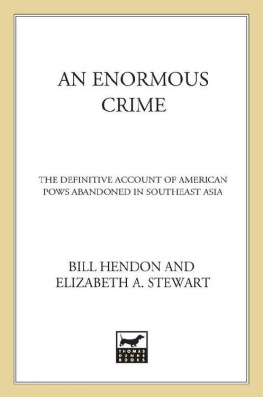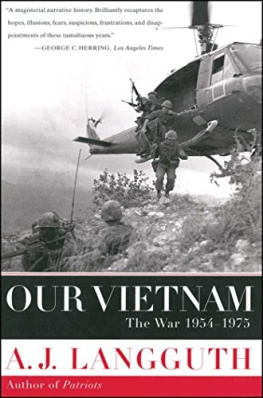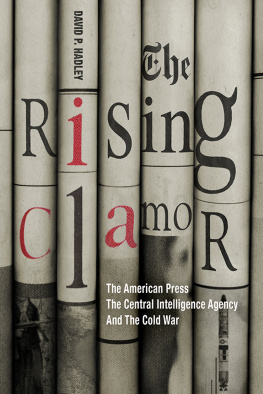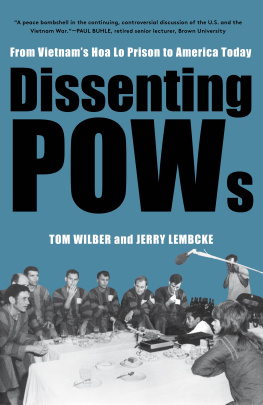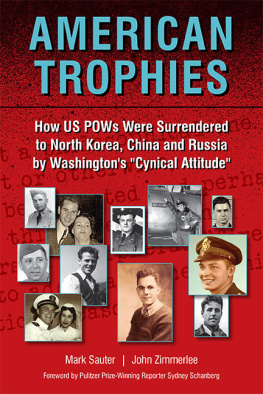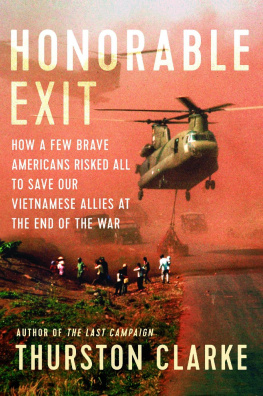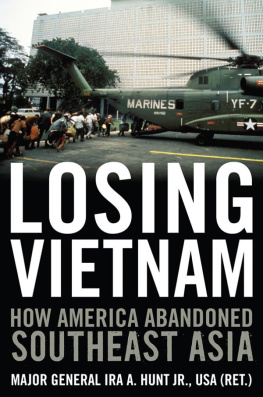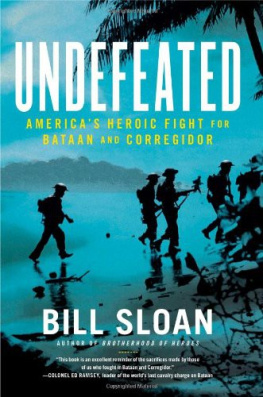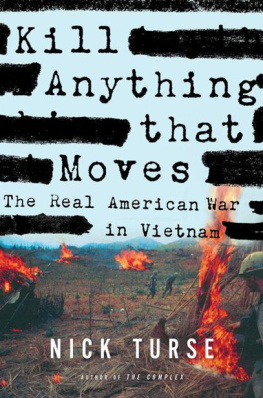MR. HENDONS PERSONAL DEDICATIONS
I dedicate this book and the good I pray will come from its publication:
To my remarkable parents: my dad, Big Bill (19141973), friend to everyone he met, World War II veteran, successful businessman, civic leader, accomplished outdoorsman, dedicated husband, wonderful father and mentor to his two boysin a phrase, the best guy you would ever want to know, who died way, way too youngand my dear late mother, Meme, who went from worlds best stay-at-home mom during my childhood and adolescence, to close friend and confidante in the years following Big Bills death, to self-appointed reality checker and gentle critic after I got elected to Congress and, as she put it, began to think quite highly of myself, and finally to unwavering supporter of my oftentimes controversial efforts on behalf of the Indochina POWs after I left Congress. As long as they lived, Big Bill and Meme were always there for me. Always. For all they did for me, and meant to me, and mean to me still, I dedicate this book first and foremost to them. In the same breath I dedicate it also to my former wife and my two daughters, who contributed mightily to this effort, and to my brother and the other members of my immediate family as well.
To the wonderful people of Western North Carolina, who extended to me the greatest honor of my life when they hired me back in the early 1980s to represent them and watch out for their interests in the United States House of Representatives.
To two very special men I came to know and admire early on in my congressional career: Sen. Strom Thurmond (R-SC), (19022003), who campaigned hard for me during my successful 1980 campaign (and equally hard for me in later campaigns as well), and Lt. Gen. Gene Tighe Jr., USAF (19211994), director of the Defense Intelligence Agency when I first arrived in Washington. Each man, I soon found, was devoted to the cause of the Indochina POWs, and each took me under his powerful wings and provided valuable direction to my efforts and much-needed personal assurances that the decisions I was making and the actions I was taking on behalf of the POWs were correct and proper. I will never be able to convey how much these two men meant to me. Nor will I ever be able to adequately describe how proud I was to walk, if for only a brief time, in the long shadow each cast.
To my buddies the bomb throwersthe two dozen or so damn the torpedoes backbench Republicans and our gutsy, like-minded comrade-in-arms across the aisle, Rep. Frank McCloskey (D-IN), (19392003)who waged all-out war for the POWs in the House during the early and mid-1980s.
To my colleague, chairman, and dear friend Rep. G. V. Sonny Montgomery (D-MS), (19202006), Southern gentleman, patriot, statesman, honorable not just in title but in everything he did. Sonny headed a House investigation intothe POW issue during 19751976 and served on a presidential commission that had conducted a similar investigation in 1977. Both had ruled that no POWs remained alive. But then had come the boat people in the late 1970s and with them a floodtide of intelligence saying otherwiseand then, in early 1981, our demands from the backbench that a new national effort be undertaken to get the POWs home. A lesser man would have circled the wagons and used his power to thwart our efforts and protect himself from possible embarrassment; Sonny, however, responded by pledging his full support and urging us on. I greatly admired him for thatand for later making good on his pledgeand for countless other reasons as well, and am honored to dedicate this book and the good that can come from it to him. He was, as everyone who knew him will tell you, a very special guy.
To my fellow intelligence investigators at the Senate Select Committee on POW/MIA Affairs: John McCreary, JD, Col. Bill LeGro, John Holstein, Ph.D., and Col. Nick Nicklas; to Deputy Staff Director Dino Carluccio and to the Select Committees vice chairman, my former House colleague and longtime friend Sen. Bob Smith (R-NH). Honorable men all; outgunned from 1991 to 1993; but never outclassed.
BILL HENDON
Washington, DC
MS. STEWARTS PERSONAL DEDICATIONS
I dedicate this book to my parents, Pete and Marnie Stewart. To Mom, who has always been unwavering in her support of this effort, who raised six children with great courage, wonderful humor and grace, and continues to be a pillar of strength to her family each and every day. To Dad, Col. Peter J. Stewart, USAFMIA March 15, 1966a decorated combat veteran of World War II and Vietnam and a devoted father and husband, for having the courage of his convictions, and whose place on the Wall gives me both sorrow and strength. We miss you more than can be put into words. My love for you both is never ending.
ELIZABETH A. STEWART
Winter Haven, Florida
On Monday, December 8, 1941, the day after Japans surprise attack on Pearl Harbor, U.S. Navy rescue parties combing the harbor for survivors began hearing tapping coming from deep within the hull of the shattered battleship USS West Virginia, which lay smoldering on the bottom near the center of battleship row. According to eyewitnesses, the tapping continued throughout the day and into the night. I was on guard duty that Monday night, Richard Dick Fiske, a Marine Corps bugler on West Virginia recalled in 1995. I could clearly hear tapping coming from inside our ship. It was devastating. We knew they were in there but we couldnt do anything because we were under total blackout in anticipation of another Japanese attack.
Fiske remembered how spirits soared on Tuesday morning when divers with hard hats and air lines arrived to attempt a rescue of the sailors trapped inside his boat and their counterparts who were heard tapping from inside USS Oklahoma , which lay nearby. After the divers and a team of welders with cutting torches rescued thirty-two sailors from within Oklahoma, operations were begun on board West Virginia . They made five dives on West Virginia that afternoon, Fiske recalled, but they couldnt get to the trapped men because of the extensive damage in the forward part of the ship. Fiske said the divers came back Wednesday and tried again but still couldnt get through to the trapped sailors. Finally, after fourteen dives, they had to give up.
The tapping continued from deep within West Virginia for fourteen more days, until Christmas Eve, Fiske said. That was the last day I heard them tapping, Christmas Eve. I still dream about it, the noise, the tap, tap, tap. Ill never forget it as long as I live.
West Virginia lay on the bottom of Pearl for several months before being moved into dry dock for repairs. It wasnt until June 1942, Fiske said, when we opened the forward pump room, that we knew for sure who they were. We found them by the forward generatorOlds, Endicott, and Costinall firemen first class who took care of the boilers. It looked like they had been tapping with a dog wrench, a special wrench used to ensure tight seals around bulkhead doors. We also found a calendar. The last entry was on December twenty-third. Im sure, though, that they tapped until the twenty-fourth, because I remember very clearly, it was on Christmas Eve when the tapping finally stopped.
THE VIETNAM WAR, OR THE AMERICAN WAR, AS THE NORTH VIETNAMESE CALL IT, OFFICIALLY lasted from early August 1964 to late January 1973. More than 58,000 Americans were killed in action or died from wounds or in accidents. More than 315,000 were wounded and survived. Hundreds were captured, imprisoned, and released at wars end during Operation Homecoming. Hundreds more were similarly captured and imprisoned but were held back by the Communists at Homecoming to ensure payment of billions of dollars in postwar reconstruction aid promised them by Richard Nixon and Henry Kissinger. Watergate intervened, the aid was not paid, and these prisoners have never been released.

